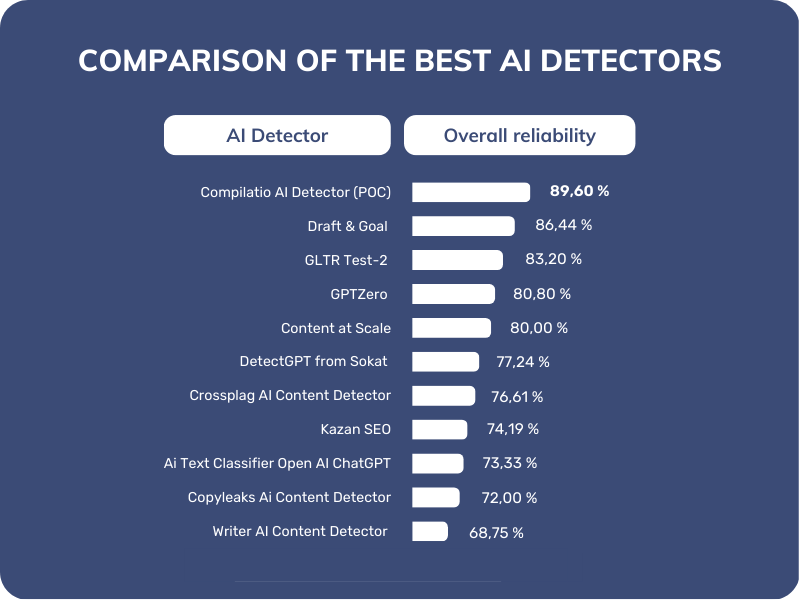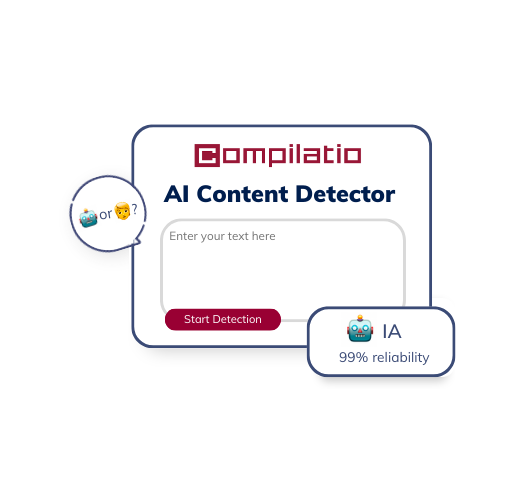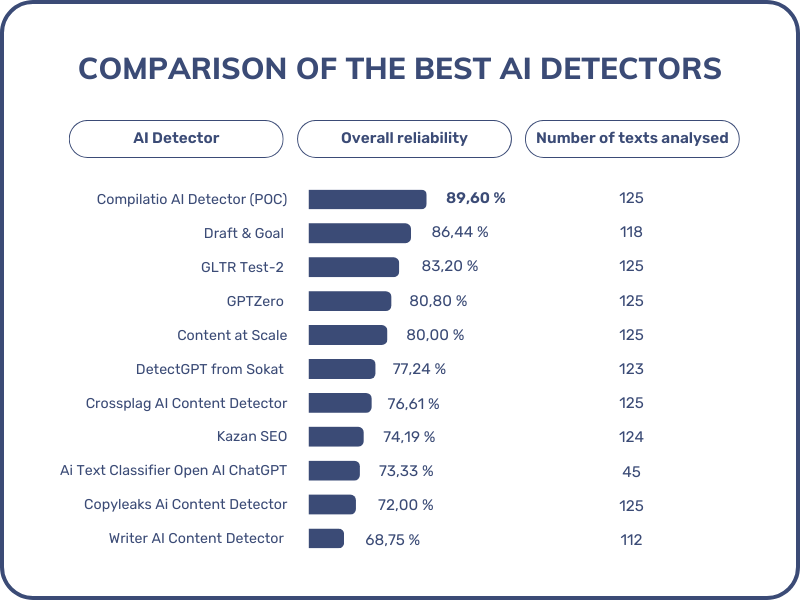If you're looking for the best AI detector, you've come to the right place.
In recent years, the rise of generative AI has captivated the general public. Several AI models have emerged, including OpenAI's ChatGPT (GPT-3, GPT-3.5, GPT-4, GPT-4o), Google's Gemini (1.5, 2.0), and Anthropic's Claude (2, 2.1, 3, 3.5, 3.7).
The widespread availability of ChatGPT and other AI tools has sparked excitement across various fields, including education, research, training, and content creation. These AI models can generate text in multiple languages, such as English, French, Spanish, Italian, German, or Arabic, simply by responding to user prompts.
We have listed and compared for you the best AI detectors in 2025!
Discover the best AI detectors:
- Compilatio AI Content Detector
- Draft & Goal AI Text Detector
- GLTR Test-2 - GPT-2 detector
- GPTZero - GPT Detector
- BrandWell - AI Text Detector
- DetectGPT from Sokat
- Crossplag AI writing detector
- Kazan SEO - ChatGPT Detector
- AI Text Classifier - Open AI Detector (ChatGPT)
- Copyleaks AI Content Detector
- Writer AI Content Detector
At the end of the article, you will also find the visual summary of the comparative analysis.




















